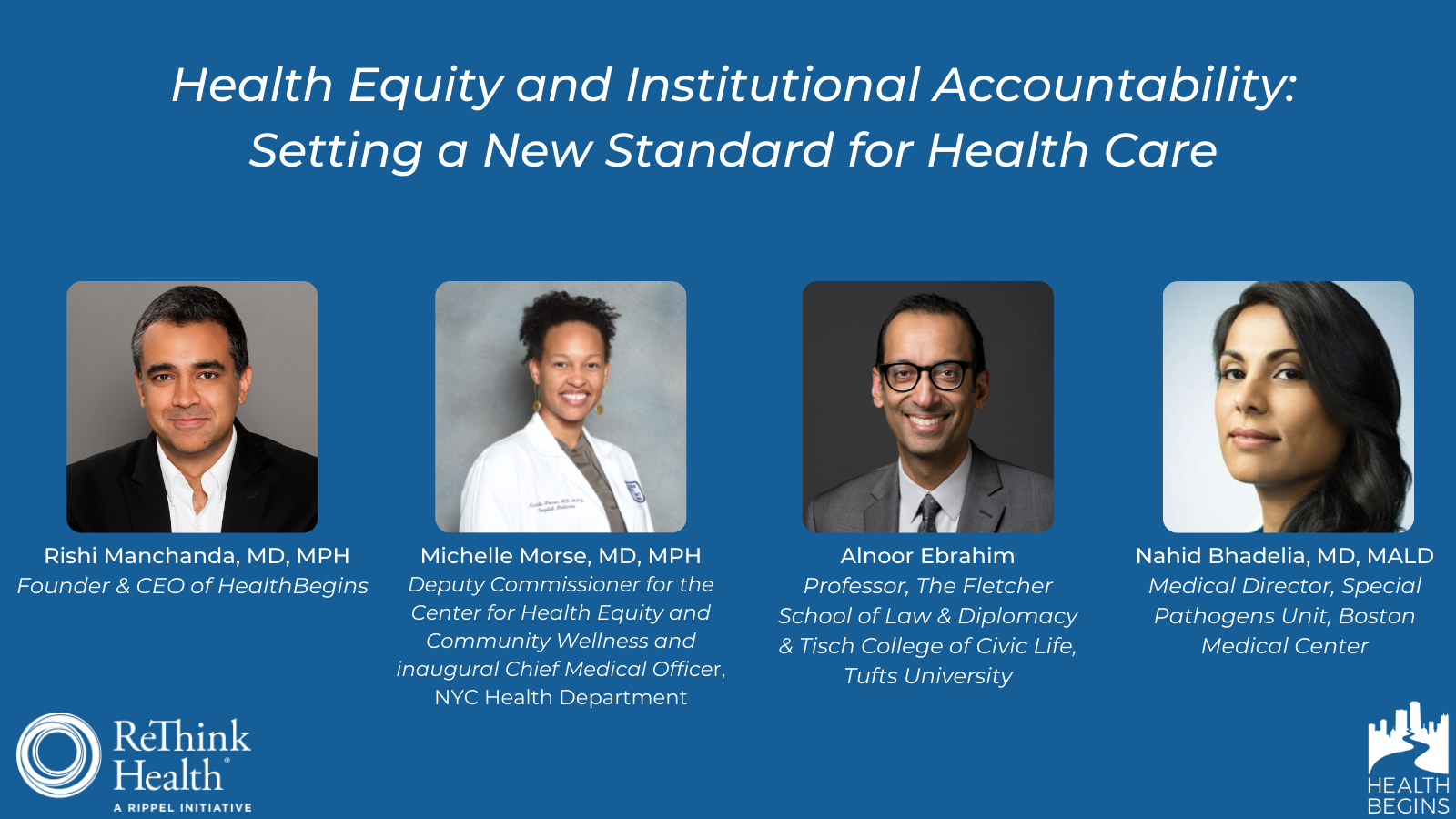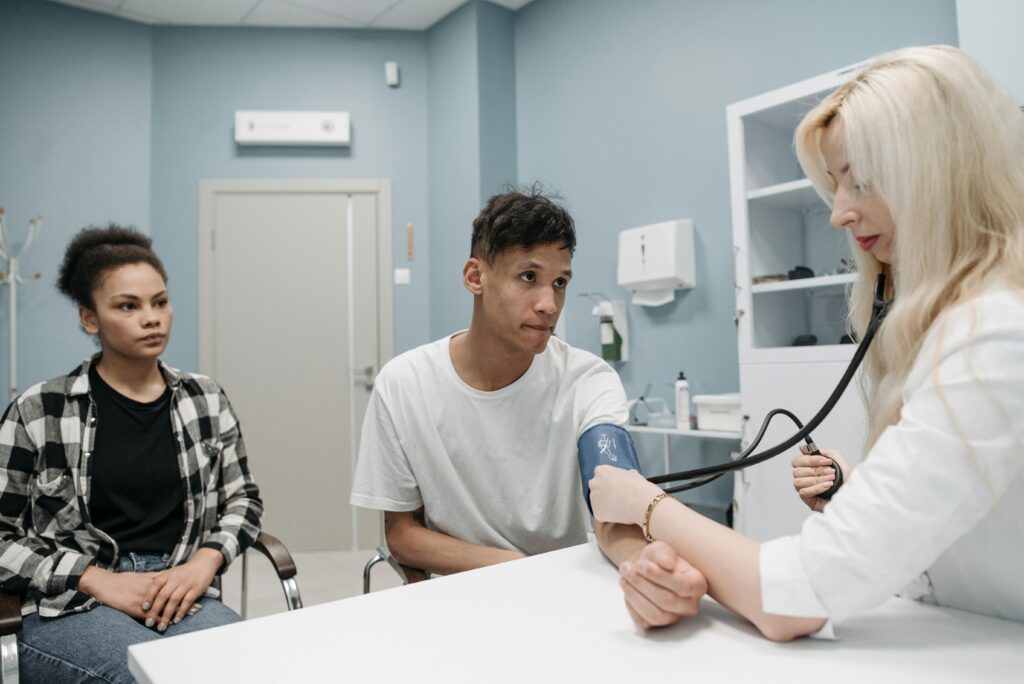As recent events have demonstrated, justice and equity require accountability. But as more healthcare institutions commit to advance racial justice and the social and structural drivers of health equity, how will these institutions be held accountable to achieve these goals? A recent Health Affairs blog by Sophia Tripoli and colleagues noted, “Health equity in particular, and improved population health outcomes more broadly, will depend in part on health care payment and delivery system reforms that focus on holding the health care system accountable for—within its scope—addressing the impact of structural racism on health and the social determinants of health.”
We held a fireside chat with national experts about what it takes to hold healthcare systems accountable for advancing racial justice and improving the social and structural drivers of health equity.
Dr. Michelle Morse joined us to share her work building institutional accountability in health care, as described in her recent Boston Review article, “An Antiracist Agenda for Medicine.” We talked with Professor Alnoor Ebrahim from the Tufts University Fletcher School of Law & Diplomacy about his groundbreaking research on institutional accountability and its implications for health systems as well as multi-sector health equity initiatives. And Dr. Nahid Bhadelia discussed why community-centered governance is so important to health equity and institutional accountability from the perspective of infectious disease treatment, prevention, and policy.
Finally, we introduced five components of institutional accountability needed to transform social and structural drivers of health equity, and shared concrete steps that existing and emerging leaders can take to put them in place.
Host:
HealthBegins
Co-sponsor:
ReThink Health, an initiative of the Rippel Foundation.
Speakers:
- Rishi Manchanda, MD, MPH, Founder & CEO of HealthBegins
- Michelle Morse, MD, MPH, Deputy Commissioner for the Center for Health Equity and Community Wellness and inaugural Chief Medical Officer, NYC Health Department
- Alnoor Ebrahim, Professor, The Fletcher School of Law & Diplomacy & Tisch College of Civic Life, Tufts University
- Nahid Bhadelia, MD, MALD, Medical Director, Special Pathogens Unit, Boston Medical Center
Webinar Objectives:
By the end of the webinar, attendees will be able to:
- Describe, institutional accountability for health care and why it matters to advancing racial justice and improving the social and structural drivers of health equity
- Identify key challenges facing internal and external stakeholders when it comes to holding healthcare institutions accountable for this work
-
List at least two concrete, near-term steps that leaders inside and outside of health care can take to increase accountability for health equity and racial justice
Featured Content
Providing Health Equity for Immigrants in a Time of Crisis
This moment presents an opportunity for healthcare leaders to harness the national attention focused on immigrant care to build investments, policies, and protections to improve care for these communities long-term.
HealthBegins Brief: Addressing Climate Health Inequities With The Community Health Needs Assessment
This HealthBegins Policy and Practice Brief invites every healthcare organization to immediately begin addressing the impact of climate change on health at the community level and with community participation.
Immigration Enforcement in Healthcare Settings: How to Prepare and Respond
Many of our healthcare partners are asking how they should prepare for potential ICE encounters on their premises and respond in the interim to concerns among patients and staff. These questions, answers, and resources provide some guidance.




